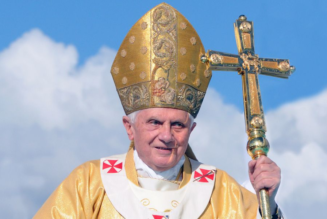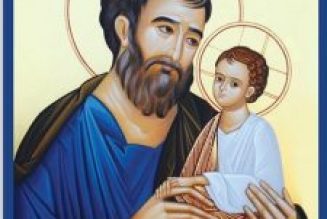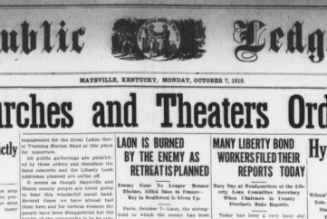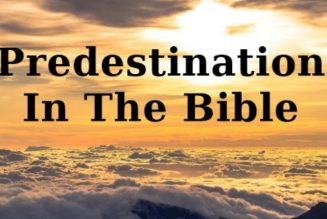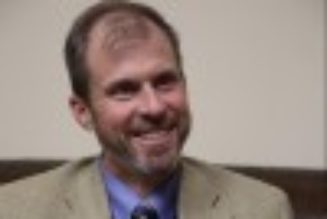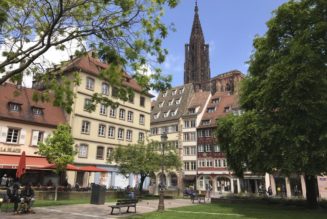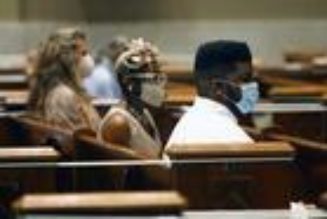, July 9, 2020
This Sunday, the 15th Sunday in Ordinary Time Year A, Jesus tells the Parable of the Sower, one of those Gospel stories that we feel like we know. After all, Jesus himself explains the parable in the long form of the Gospel — meaning that to interpret it in any other way is foolhardy.
But the application of the parable is another matter.
The Parable of the Sower shows just what a great risk Jesus took, and how much depends on us.
There are several startling facts about the Parable of the Sower when you stop to think about them.
A large crowd gathers around him and he begins, “A sower went out to sow, and as he sowed, some seed fell on the path … Some fell on rocky ground … Some fell among thorns.”
I don’t know what ancient farmers were like, but farmers in Kansas take a different approach, planting in carefully spaced rows on ploughed fields. They don’t toss seed everywhere on paths, rocks and weeds.
But Jesus does — he gives these very words not just to his Apostles and disciples, but also to stray people in the crowd whom he has never met and might never meet again.
And what he tosses around is far more valuable than the seeds farmers sow. It’s impossible not to think of Jesus’s other seed analogies here, especially the grain of wheat that is Christ himself. As St. John Chrysostom points out, “The sower went out to sow,” is a reference to Jesus who came to us in his incarnation.
Jesus still goes to remarkable lengths to sow. But now he risks his seed on us.
There are three ways we receive Christ at each Mass — three ways he “goes out to sow.” We hear his word in Scripture; we join our praise, suffering, prayers and work with his Sacrifice on the Cross; and we unite ourselves with him in the Sacrament of the Eucharist. Scripture, Sacrifice, and Sacrament: The Parable of the Sower lays out the options of what we can do with each of them.
First, we can receive Christ as one stop “along the path.”
“The seed sown on the path is the one who hears the word of the kingdom without understanding it,” says Jesus, “and the evil one comes and steals away what was sown in his heart.”
How many times do the Scripture readings at Mass go in one ear and out the other? How often do we tune out the consecration prayer? And how often do we think more about how to navigate the communion line than we do about who we are receiving at the end of it?
But it’s worse than that. “The wayside is the mind trodden and hardened by the continual passage of evil thoughts,” wrote St. Rabanus Maurus, a ninth century archbishop quoted by St. Thomas Aquinas. We are not just distracted, we are hardened by too many unworthy entertainments, gossipy conversations, salacious and bitter thoughts.
Christ is the Way, the center of our life and the source and summit of our spiritual lives, but we shove him to the wayside.
Second: You can receive Christ with great emotion but little follow-through.
Often we receive Christ in “rocky ground” with joy and apparent success, but we have “no root” so “faith lasts only for a time. When some tribulation or persecution comes,” we fall away.
The rock is “the hardness of the self-willed mind,” says St. Rabanus. Maybe we love Mass because of how it makes us feel. It can be Glory and Praise songs or traditional hymns that touch us. We may love the welcomers at the door or the awed silence within. But Mass does not exist to make us feel welcomed or awed. Those just serve the real purpose: to encounter Jesus Christ the Word in our intellect, let his Sacrifice inspire our will, and allow his Sacramental grace to transform us.
Loving the faith when it consoles and comforts is not good enough. If we don’t love the faith when it upsets us or provokes others, the harsh heat of persecution will scorch us.
Third, you can crowd Jesus out with your reliance on material comforts.
“The seed sown among thorns,” says Jesus, is choked by “worldly anxiety and the lure of riches” and bears no fruit.
This is us when we hear Christ very well, know exactly what he is asking, and never act on it.
We know we should share the Gospel — but we can’t right now; there is our career to consider, and we have to be careful how we get on with our neighbors. We know we should share in his Sacrifice — and we definitely would, but our money is kind of tied up right now. We love the Blessed Sacrament, and we know it should lead to a deeper prayer life, but our routine is very much set, and habits are hard to change.
But next comes the good news: We are not stuck with being either trampled, rocky, or thorny.
Soil can’t change itself, St. John Chrysostom says, but we can. “With minds and doctrines it is possible that the rock be made rich soil, that the way should be no more trodden upon, and that the thorns should be eradicated.”
We can change the soil and get a different result. “The seed sown on rich soil is the one who hears the word and understands it, who indeed bears fruit and yields a hundred or sixty or thirtyfold,” says Jesus.
In the Second Reading, St. Paul explains how. To stop trampling the soil, “await with eager expectation” God’s grace. To soften the self-willed heart “consider that the sufferings of this present time are as nothing compared with the glory to be revealed to us.” Weed out the thorns of worldliness and be “set free from slavery to corruption and share in the glorious freedom of the children of God.”
That freedom is what we need above all: the freedom to make Mass a destination, not a stop along the way; the freedom to accept suffering and setback without fleeing; the freedom to stop thwarting Jesus and let his sacrament change us.
If we do, God told Isaiah what will happen: “My word shall not return to me void, but shall do my will, achieving the end for which I sent it.”
Tags: 15th Sunday in Ordinary Time Year A, prayer, Sunday Gospel, Sunday Readings
Never miss a post! Subscribe below to our weekly newsletter.



